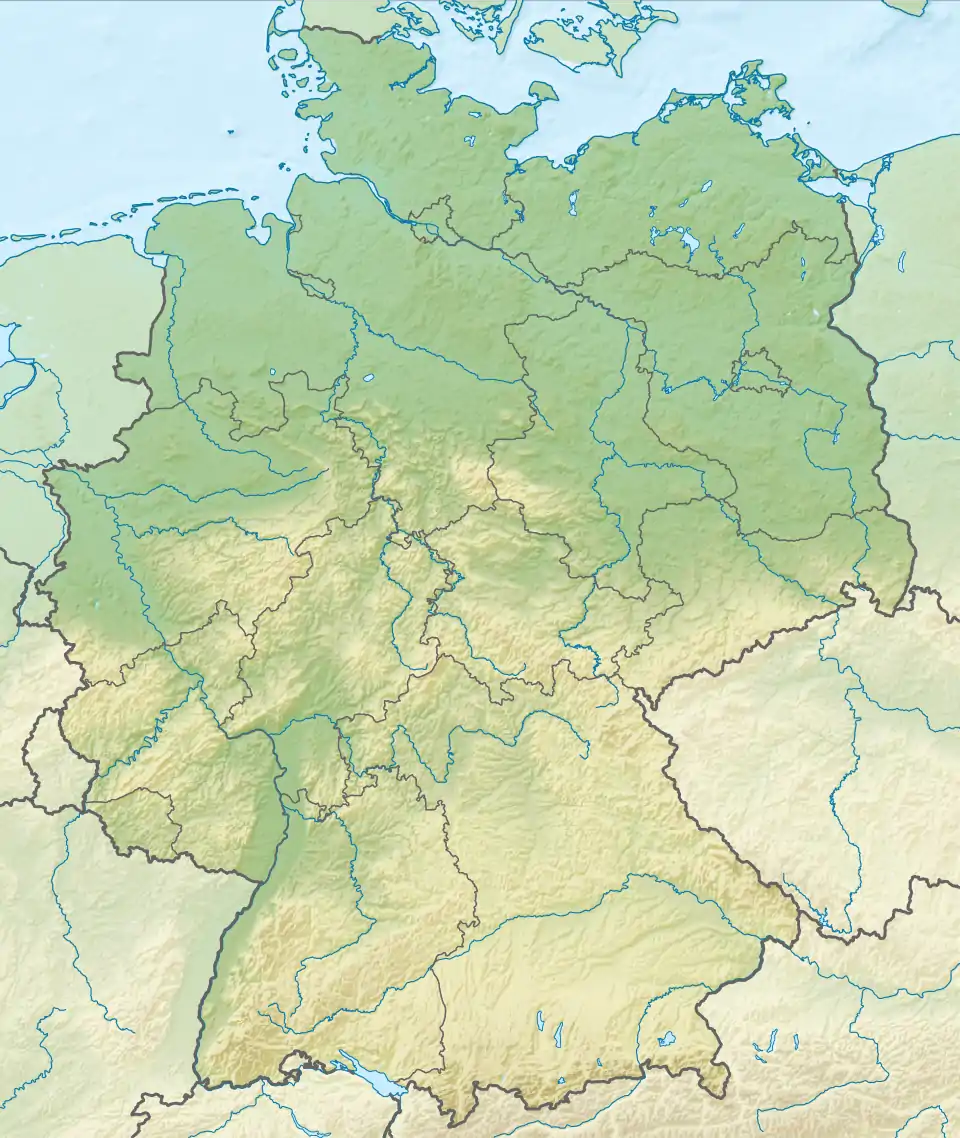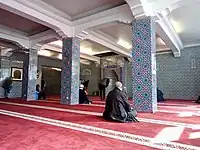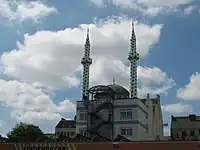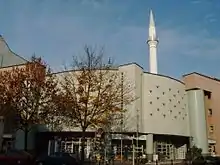Hamburg Central Mosque
The Hamburg Central Mosque (German: Centrum-Moschee Hamburg, Turkish: Merkez Camii) is a mosque founded in 1977 by Association of Mosques and located in the Hamburg-St. Georg in Hamburg. «Islamic community of Hamburg — Centrum-Moschee e.V.» is a founding member of Alliance of Islamic Communities in Northern Germany (BIG) and member of Schura Hamburg,[1] with which the State of Hamburg maintains State Treaty. On February 27, 2016, the Muslim theologian Mehmet Karaoglu was elected imam as chairman of the Central Mosque.[2] He is also President of IGMG -Hamburg and Chairman of BIG.[3] Fatih Yildiz was elected as a deputy. Karaoglu and Yildiz replaced the previous chairman and imam Ramazan Ucar and his deputy Ahmet Yazici after almost two decades.
| Hamburg Central Mosque | |
|---|---|
Turkish: Merkez Camii | |
 | |
| Religion | |
| Affiliation | Islam |
| Branch/tradition | Sunni |
| Location | |
| Location | Hamburg, Germany |
 Shown within Germany | |
| Geographic coordinates | 53°33′15″N 10°01′00″E |
| Architecture | |
| Type | mosque |
| Style | Islamic architecture |
| Groundbreaking | 1977 |
| Specifications | |
| Dome(s) | 1 |
| Minaret(s) | 2 |
History


The community of mosques was founded by Turkish guest workers and was originally called the «Society of Turkish Workers in Hamburg and its environs for the founding and construction of a mosque». The building, purchased in 1977, housed a bathhouse, the former Bath Hammonia. In 1990, a new building was started, which was docked to the old building. A dome and two minarets were installed on it. This made the building recognizable as a mosque from the outside. The groundbreaking ceremony in 1992 was attended by the then Prime Minister of Turkey Nedcmettin Erbakan, who at that time was the leader of the movement Milli Görüş.[4] In 2001, the association's name was changed to «Islamische Gemeinde Hamburg — Centrum-Moschee e.V.».[5]
Art project minaret
The minarets of the Central Mosque were painted with a new pattern of green and white hexagons in 2009 thanks to the collaboration of artist Boran Burchardt and the mosque administration. The project aroused great interest all over the world. For the first time, a work of art was made from a part of the building, externally recognizable as a mosque, moreover, a work of art.[6] The then Bishop of the North Elbe Church Maria Jepsen supported the Muslim request for a daily call muezzina.[7]
References
- Vgl. die Mitgliederliste auf der Website von «Schura Hamburg e.V.», retrieved 22 December 2019.
- "Wie Viele Muslime Leben In Deutschland?". Cruz del Tercer Milenio. 2023-05-26. Retrieved 2023-07-21.
- S. 11 Post Gazetesi March 2016
- "Yeşil benekli minare açılımı". www.hurriyet.com.tr (in Turkish). 2009-08-03. Retrieved 2023-07-21.
- "Centrum-Moschee Hamburg". www.eslam.de. Retrieved 2023-07-21.
- http://www.minare.de
- Hamburger Abendblatt: bar" 22 December 2009, retrieved 5 January 2010.

